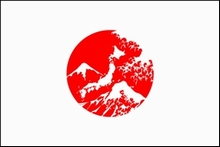Reexamine the Japanese Language through Translation
October 1, 2014

Globalization has created the need for translation in a very wide range of fields. Translation not only requires translators to know the source language but also to have the ability to accurately express in Japanese what is written in the original material. Translators will not be able to produce good translations unless they have a deep knowledge of the Japanese language. In this blog post, we will highlight some key points that will be beneficial for people to know when translating materials into Japanese.
Japanese: A Language Rich in Vocabulary
Did you know that the Japanese language requires its speakers to use significantly larger vocabulary in everyday communication compared with other languages? A basic vocabulary of five thousand words will be enough to get people through 93.5% of day-to-day conversations in English and 96.5% in French. In Japanese, the same size vocabulary will be enough to cover only 81.7% of the words used in commonplace conversations. If you want to have a 90%-coverage of everyday conversations in Japanese, you need to acquire a surprisingly larger vocabulary of 10 thousand basic words.
This does not mean, however, that languages with a higher percentage of coverage are easier to learn for speakers of other tongues. Those languages have many words with multiple meanings. The Japanese language, on the other hand, can be described as having a large vocabulary of words, with each one being more concrete in meaning.
Put differently, when translating from English, French, and other languages that have a vocabulary of words with a higher degree of ambiguity, translators need to accurately understand the meaning of each word from the context and then select an appropriate Japanese word to translate it into.
What to Pay Attention to When Taking in the Meaning of a Word
When trying to understand the meaning of a foreign word that has a high level of ambiguity, you should note the following points.
1. Primary Meaning
This means the core meaning of a word. For example, the primary definitions of the word "good" are "of high quality," "correct or proper," and "to be desired or approved of."
2. Context
Some words take on a different meaning in different contexts, while others that mean the same should be used selectively depending on the occasion.
One example of the former type of words is "magnitude." While it is usually used to mean the size or extent of something, it can also mean absolute value in mathematics. The word "debtor" used in business contexts to mean a person or institution that owes money refers to a sinner in theology.
Moving on to the latter type of words and phrases. For example, the phrase "to put up with" is usually used in casual contexts. In more formal situations, the word "tolerate" is used.
3. Figurative Meaning
Some words have taken on a figurative meaning by being used differently than they are traditionally. The terminology of business and mechanical science has many such words with a figurative meaning.
For example, the word "niche," which means a recess in a wall, is used to indicate a specialized but profitable section of a market in business settings.
4. Implied Meaning
In addition to their original definition, some words have an implied meaning.
For example, when describing a person lacking fixed, regular housing, you should carefully select a word to use, as the word "vagrant" sounds more negative than "homeless." It is also important to remember the negative connotations that some words can have depending on the context in which they are used. Examples include "handicapped," "black," and "blind."
Summary
It is not an easy task to accurately understand materials written with ambiguous words in other languages and then to select suitable expressions from the rich vocabulary of Japanese. That is why translation not only requires the knowledge of the source language but also an excellent understanding of Japanese.
Related Services
| What Do You Need to Produce High-Quality Translations? >> |
To Contact Us Regarding Our Translation Services
For urgent needs, call:
+81-3-5730-6133
